 Strengthening the Soul of Your Leadership by Ruth Haley Barton
Far too many spiritual leaders focus on improving their leadership while ignoring their souls. Barton’s work is a powerful counterbalance to this dangerous tendency. It is very readable, but take your time to reflect on her rich insights. Read my blog on Strengthening the Soul …
Strengthening the Soul of Your Leadership by Ruth Haley Barton
Far too many spiritual leaders focus on improving their leadership while ignoring their souls. Barton’s work is a powerful counterbalance to this dangerous tendency. It is very readable, but take your time to reflect on her rich insights. Read my blog on Strengthening the Soul …
Brown’s surprising research on vulnerability and courage has resulted in two wildly popular TED talks and an equally powerful book. While this may be a topic that you’d prefer to avoid, her insights will make you a better leader.
Read my blog on Daring Greatly …
Based on 80,000 interviews conducted by the Gallup organization over 25 years, Buckingham and Coffman’s work is full of practical insights on getting the best performance from the people you manage.
Good to Great remains at the very top of my recommended reading list for any leader. Since most leaders inherit organizations that are not “great,” Collins’ basic question (“How can we make the leap from good to great”?) is essential to their success. His research is packed with memorable phrases and practical principles that any leader can use.
This short monograph helps to bridge the gap between Collins’ business-based research and the unique challenges faced by non-profit organizations. It is best read in conjunction with
Good to Great.
 Great by Choice by Jim Collins and Morten Hansen
Great by Choice by Jim Collins and Morten Hansen
The latest book by Jim Collins (with Morten Hansen) is packed with practical wisdom, memorable phrases, and surprising findings. As with his other books, the research is based in the business arena, but the conclusions apply to leaders in virtually any sector. Along the way, he dispels popular notions about the role of luck and innovation in success.
Read my blog on Great by Choice …
Gladwell has a knack for surprising readers with unconventional wisdom. In this case, he makes a compelling argument that being the underdog can work in our favor and that what we often consider to be advantages may really be obstacles to success.
Read my blog on David and Goliath …
Mission Drift by Peter Greer and Chris Horst
Is it possible that your church or ministry could slowly but dangerously drift away from its mission? According to Peter Greer and Christ Horst, the answer to this troubling question is “yes.” Fortunately, they also offer great advice on how to stay “Mission True.”
Read my blog on Mission Drift …
 Switch by Chip Heath and Dan Heath
Switch by Chip Heath and Dan Heath
If you’ve ever been struggled with how to make a difficult change – and that is probably every person reading this – you need to read
Switch. The Heath brothers have a remarkable ability to synthesize reams of research from the social sciences into fun, readable, and practical books. In this case, they deliver on the book’s subtitle: “How to Change Things When Change is Hard.”
Read my blog Switch …
 Decisive by Chip Heath and Dan Heath
Decisive by Chip Heath and Dan Heath
The newest book from the Heath’s delves into the arena of decision science. It may sound geeky, until you boil it down to a question that every leader asks: “How can I make the best possible decision in this situation?” The Heath’s offer practical answers to this important question.
Read my blog on Decisive …
 Axiom by Bill Hybels
Axiom by Bill Hybels
This short book is filled with axioms that Hybels has used during his years of leading Willow Creek. Each axiom is only two or three pages long but is full of wisdom.
Read my blog on Axiom …
Hybels speaks from the depth of his heart and his years of experience as he offers an inspiring blend of biblical and practical advice for church leaders. Each chapter addresses a different dimension of leadership.
This is still one of the best resources that I have found on the subject. Katzenbach and Smith give a clear definition of “team,” explain the power that can be unleashed when teams are working well, and describe what it takes to make this happen.
Kotter is one of the world’s foremost experts on the subject of organizational change, and this is his classic text. Based on his work with a number of organizations, Kotter describes an eight-stage process that guides successful change efforts. He also describes many of the pitfalls that can undermine change.
This is one of the best general leadership books on the market. Kouzes and Posner write in a style that is very accessible and encouraging. They show that you don’t have to be at the top of the organization to lead and that anyone can grow as a leader. They don’t just inspire; they provide concepts and tools to facilitate this growth.
Lencioni’s fable-style business books are some of the most popular and insightful resources on the market. This one gives a compelling diagnosis of the problems that many business (and churches) have with teamwork and then offers a prescription to address the problems.
Lencioni departs from his standard approach in
The Advantage, which compiles many of the lessons from several of his earlier fable-style books. The singular focus of
The Advantage is organizational health. I don’t know of many leadership teams that couldn’t benefit from working through this book together.
Read my blog on The Advantage …
McNeal paints a compelling picture that the church must change if it is to follow God’s calling to change the world. This is a great resource to help pastors and lay leaders recognize how much the world around them has changed.
McNeal’s book is divided into two parts: the first examines the heart-shaping influences in the lives of four biblical characters, and the second unpacks the six categories of influence.
A Work of Heart challenges leaders who are at the top of their game and encourages leaders who are in the deepest valley to see God’s heart-shaping work in all their circumstances.
 Drive by Daniel Pink
Drive by Daniel Pink
What motivates people to do their best? Pink makes a compelling argument that most organizations focus on extrinsic, carrot-and-stick motivation, but today’s workforce responds to intrinsic factors. Pink will cause you to rethink about how you approach rewards (and punishment) in your organization.
Read my blog on Drive …
Quinn is another of the world’s leading experts on organizational change, and I have recommended this book countless times. He challenges leaders to recognize their potential to be agents for change and forces them to confront the risk of settling for the status quo, which in Quinn’s words leads to “slow death.”]]>
 Strengthening the Soul of Your Leadership by Ruth Haley Barton
Far too many spiritual leaders focus on improving their leadership while ignoring their souls. Barton’s work is a powerful counterbalance to this dangerous tendency. It is very readable, but take your time to reflect on her rich insights. Read my blog on Strengthening the Soul …
Strengthening the Soul of Your Leadership by Ruth Haley Barton
Far too many spiritual leaders focus on improving their leadership while ignoring their souls. Barton’s work is a powerful counterbalance to this dangerous tendency. It is very readable, but take your time to reflect on her rich insights. Read my blog on Strengthening the Soul …


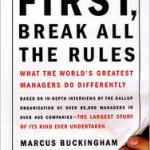
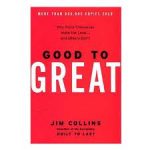

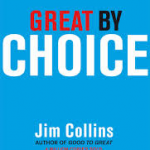




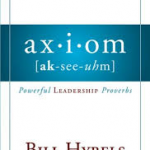
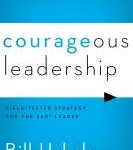
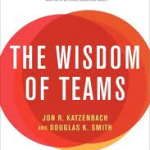
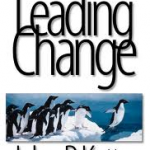
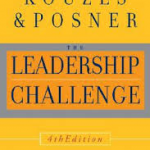
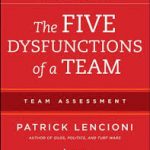
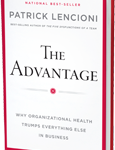


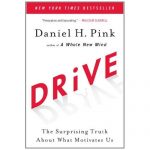
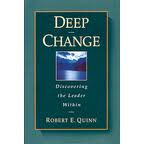
Pingback:Breaking Rules | Mike Bonem